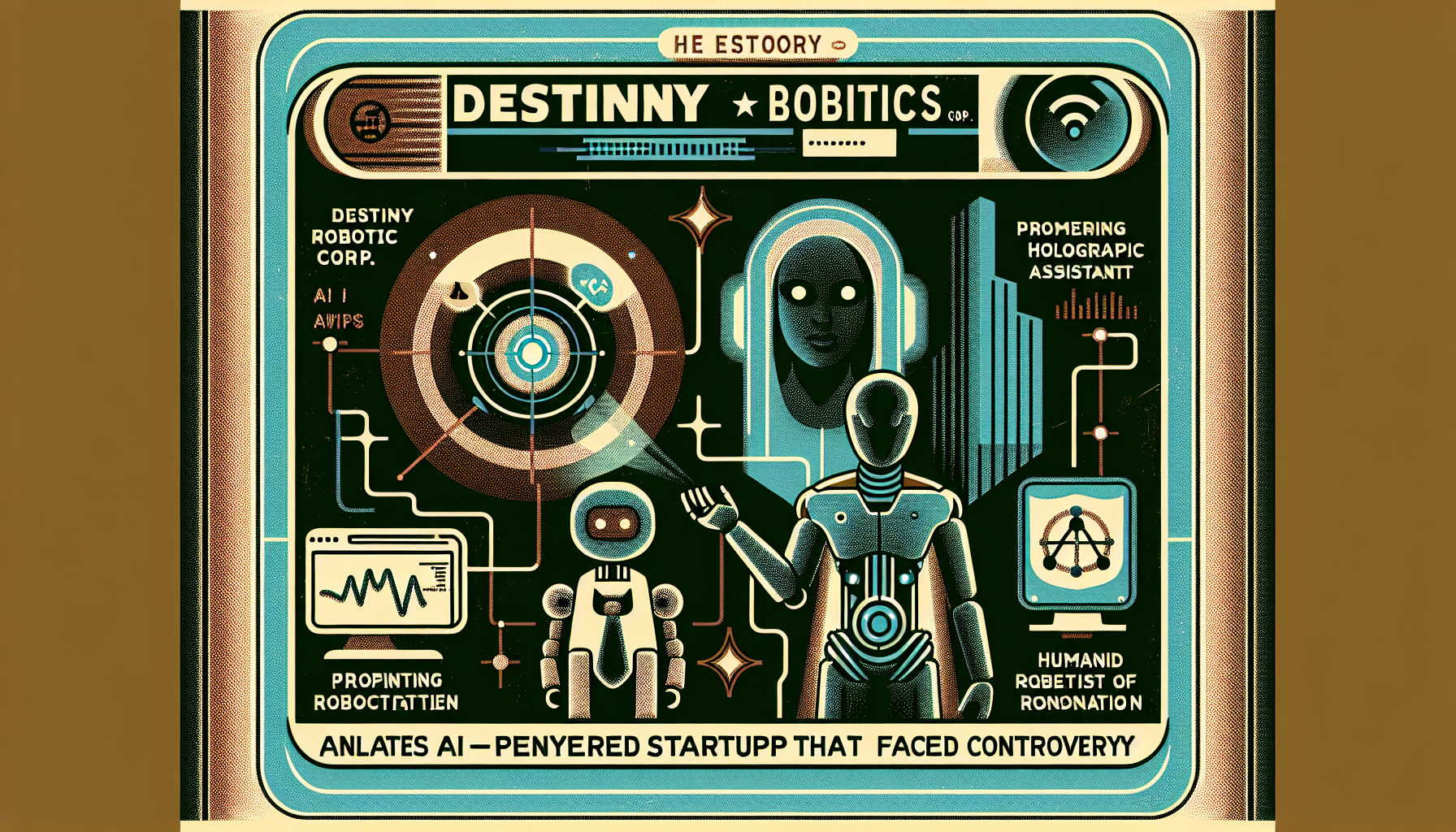Destiny Robotics Corp., a startup once filled with promise, has settled with the Securities and Exchange Commission (SEC) over allegations of misleading investors about its impressive-sounding AI robot project. Founded by Megi Kavtaradze in 2021, the company aimed to bring an AI-powered holographic assistant and a humanoid robot into the world.
The Dream of Destiny Robotics
Destiny Robotics captured attention with a bold vision: a humanoid robot and a holographic assistant for homes that could forge “deep and meaningful relationships with humans.” These were not just pipe dreams; the company promised its creations would help with critical tasks like crisis management, therapy, and even childcare.
Excited by this vision, 145 investors poured nearly $141,455 into the company from February 2022 to March 2023. Platforms like Wefunder buzzed with the potential of these groundbreaking ideas. Despite the excitement, the SEC’s thorough investigation painted a different picture.
The Reality Unveiled
The SEC uncovered that Destiny Robotics was not developing revolutionary AI, but rather, using existing language processing tools. In 2022, the company shared a video of what it claimed was an AI-powered holographic assistant. The truth was, this assistant was created with easily accessible commercial software, and the project died soon after.
Moving to 2023, Destiny Robotics unveiled a video showing off a supposed humanoid robot. This was far from the cutting-edge design investors hoped for. It was a simple plastic head and shoulders setup, requiring an external device to operate—a fleeting illusion of innovation soon abandoned without investor knowledge.
Unmasking Personal Misconduct
The spotlight on Kavtaradze revealed unsettling truths. She misused funds for personal gain—specifically, nearly $13,000 to apply to six MBA programs in the United States. On top of this, a significant personal relationship with a lead investor wasn’t disclosed during the company’s fundraising campaigns.
Further, Kavtaradze’s resume was not as advertised. Claims of her being an “experienced technology executive” with a background in managing large-scale projects were overstated. In reality, such experience was lacking, adding another layer of deception.
The Path Forward and Consequences
The settlement reached now requires Kavtaradze to pay back $12,990.63, along with $1,394.06 in prejudgment interest and a hefty civil penalty of $50,000. Though these judgments do not come with an admission of guilt, they serve as a permanent injunction against violating any antifraud rules of the Securities Act of 1933.
Though awaiting court approval, the settlement marks the end of Destiny Robotics. With no new products or developments on the horizon, the company has effectively closed its doors. Kavtaradze, having redirected her ambitions towards academia, is currently at the UC Berkeley Haas School of Business, with a completed internship at Adobe under her belt.
Lessons and Learnings
This entire episode underscores a crucial lesson for the startup world: absolute transparency and honesty are vital. Misleading investors, whether regarding product capabilities or the integrity of company leadership, can lead to severe and irreversible consequences. Trust is paramount, and once shattered, it can take down even the most glittering of ventures.

Leave a Reply